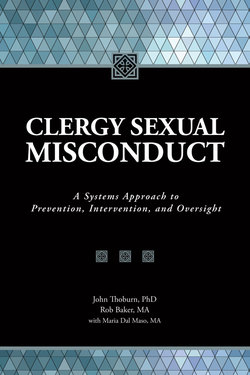Читать книгу Clergy Sexual Misconduct - John Thoburn Thoburn - Страница 4
На сайте Литреса книга снята с продажи.
Foreword by Patrick Carnes, PhD
ОглавлениеWho would have thought when I wrote Out of the Shadows twenty-eight years ago that there would be such a dramatic response to the issue of sexual addiction? The years since have witnessed an explosion in research, teaching, the development of screening assessments, inpatient hospital programs, Twelve Step programs, certificate training programs for mental health practitioners, and national conferences—all devoted to addressing this psychosocial disease, so that the hold it has had on so many lives would be broken.
One of the last bastions to come on board has been the Church, where response to sexual addiction tends to alternate between head-in-the-sand deflection and moral outrage. Sexual abuse in the Catholic Church has received widespread attention, but clergy sexual misconduct knows no denominational lines and is a well-documented problem that extends to Protestant Churches as well. Research shows that nearly 10 percent of Protestant pastors have sexual contact with someone other than a spouse while in the ministry, more than 30 percent of ministers engage in sexual behavior that they consider inappropriate, and more than 15 percent of ministers qualify as addicted to Internet pornography. Furthermore, when clergy sexual misconduct is discovered in a congregation, an average of seven women have been victimized.
Since 1983 when Out of the Shadows was first published (originally published by CompCare as The Sexual Addiction), there have been just over two dozen research articles on clergy sexual misconduct. In contrast, there have been nearly 700 research articles on the general topic of sexual addiction. A handful of books on clergy sexual misconduct have been written in the same time period, but the subject deserves significantly more constructive attention than it has received. Existing books on Protestant sexual misconduct have tended to focus on specific areas, such as rehabilitation for the pastor, prevention needs, denominational policies, or the traumatic effects on the pastor, his family, or the congregation. Clergy Sexual Misconduct widens this perspective by exploring how each of these elements influences one another and why a systemic approach is the best way to shed light on and address this stubborn, growing problem that threatens to cripple the efficacy of the Church.
John Thoburn, MDiv, PhD, is an associate professor of clinical psychology at Seattle Pacific University. He is a licensed psychologist, board certified in couple and family psychology, and a former ordained minister. He has written extensively in the research literature on clergy sexual misconduct. Rob Baker, MA, is a Washington State licensed marriage and family therapist and licensed mental health counselor. He is a certified sex addiction therapist and supervisor through the International Institute for Trauma and Addiction Professionals. As editors of this book, they have enlisted recognized experts in the field of sexual addiction and clergy sexual misconduct—people I personally know: Mark and Debbie Laaser, Ralph and Marcus Earle, Ted Roberts, Bill Lennon, Sue Neufeld-Ellis and Sonja Rudie. In all, fifteen experts have contributed chapters to Clergy Sexual Misconduct on how a systems model can effectively target the intervention, treatment, and education needs of the clergyperson, the pastor’s family, the congregation, and denominations.
I’m a social scientist not a theologian, but I think it’s safe to say that the Church should be the one place where people might find hope for change, absolution from shame, treatment that will herald new beginnings, and strategies for prevention that take full advantage of spiritual dimensions. This book is a resource that takes us in the right direction.
